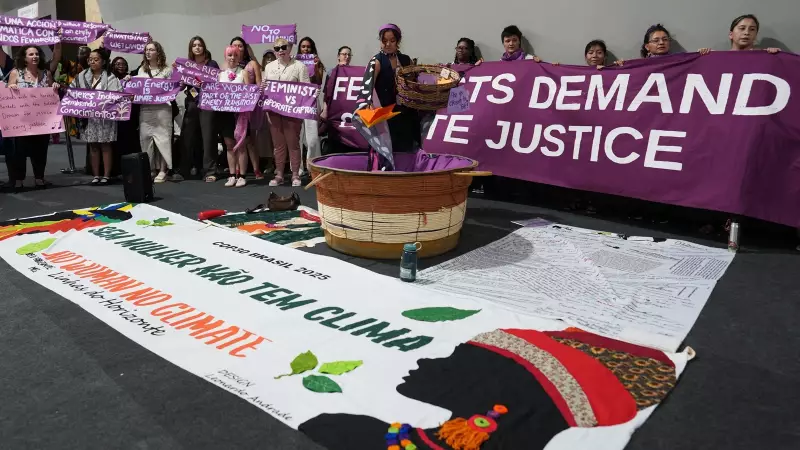
In a dramatic escalation of climate activism, hundreds of protesters forced their way into the official venue for the upcoming COP30 climate summit in Belem, Brazil, on Tuesday. The breach occurred despite heavy security presence, highlighting growing tensions over inclusion and priorities in global climate negotiations.
Confrontation at the Summit Venue
Indigenous leaders and environmental activists managed to push past security personnel at the Hangar Convention Center, the designated location for the United Nations climate conference scheduled for November 2025. The confrontation lasted approximately 30 minutes as protesters demanded greater representation in the planning process and criticized what they called the "corporate capture" of climate talks.
Witnesses described chaotic scenes as security forces initially blocked the main entrance but were eventually overwhelmed by the determined crowd. The protesters, representing various Indigenous groups from across the Amazon region, carried banners reading "Nothing About Us Without Us" and "Climate Justice Now."
Indigenous Demands and Government Response
The organizing coalition, comprising multiple Indigenous organizations, issued a statement explaining their actions. They demanded guaranteed participation for Indigenous communities in all COP30 decision-making processes and protested against the increasing influence of fossil fuel companies in climate negotiations.
Brazilian authorities confirmed the incident but downplayed security concerns. A spokesperson for the Brazilian government's COP30 organizing committee stated: "While we respect the right to peaceful protest, we regret the breach of security protocols. We remain committed to an inclusive summit that addresses the concerns of all stakeholders, particularly Indigenous peoples who are on the frontlines of climate change."
Broader Implications for Climate Governance
This incident occurs against the backdrop of growing global frustration with the pace of climate action. Many climate-vulnerable communities, particularly from the Global South, have expressed dissatisfaction with what they perceive as inadequate representation in international climate forums.
The Belem protest follows similar demonstrations at previous COP summits, including COP28 in Dubai, where activists criticized the appointment of a fossil fuel executive as president of the climate talks. However, this marks one of the first instances where protesters have successfully breached security at a future COP venue months before the actual event.
Security analysts have raised concerns about the implications for the actual summit in 2025. The Brazilian government has assured that comprehensive security measures will be implemented to prevent similar incidents during the official proceedings, while also promising to engage in dialogue with protesting groups.
As climate negotiations become increasingly contentious, the Belem incident signals that activist groups are adopting more confrontational tactics to ensure their voices are heard. The success of this breach may inspire similar actions at other international climate events, potentially reshaping how security is managed at future environmental summits.





